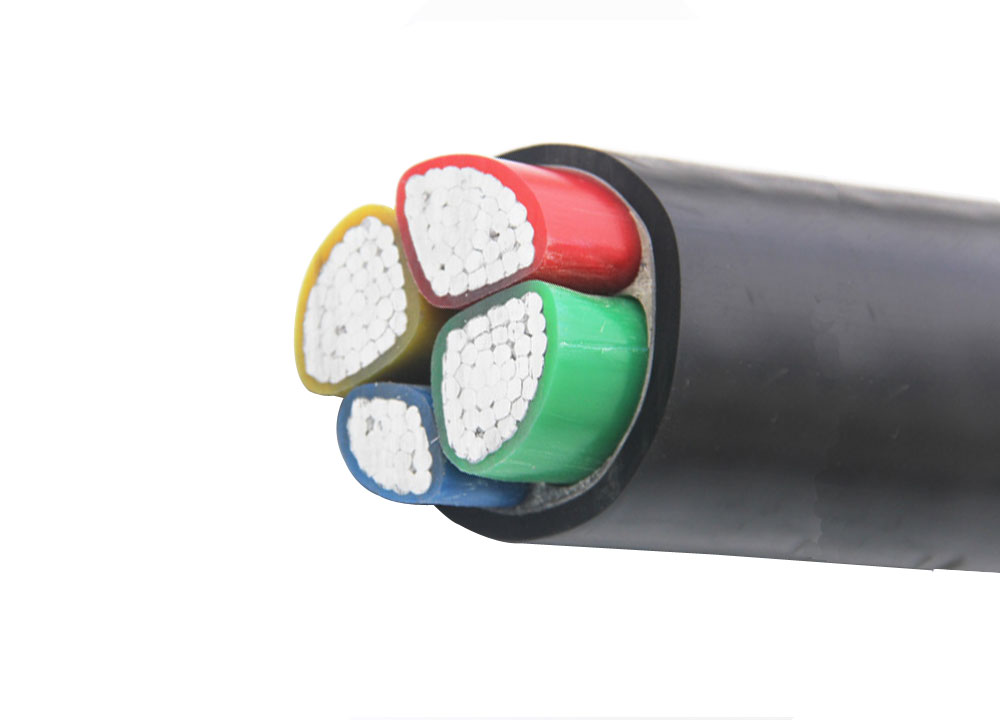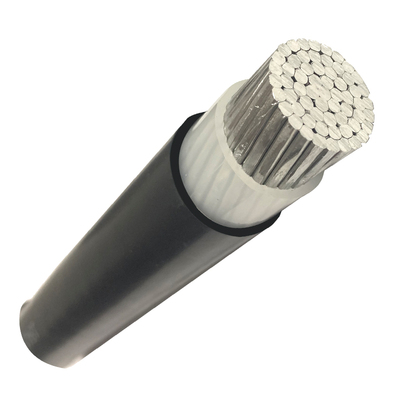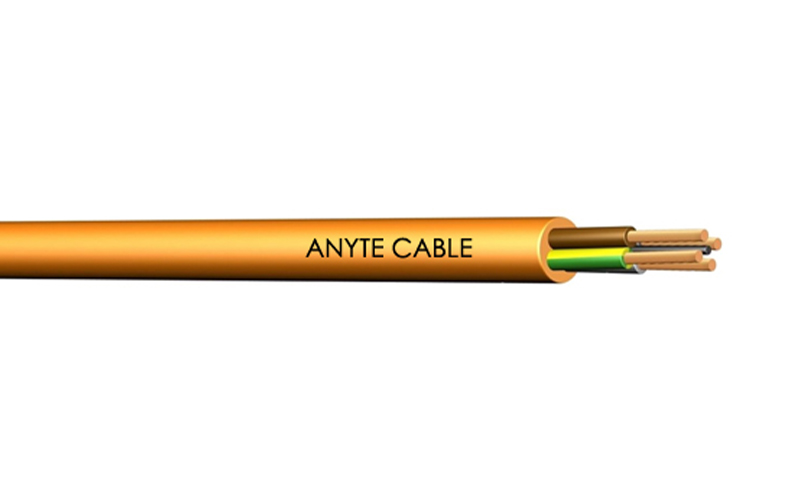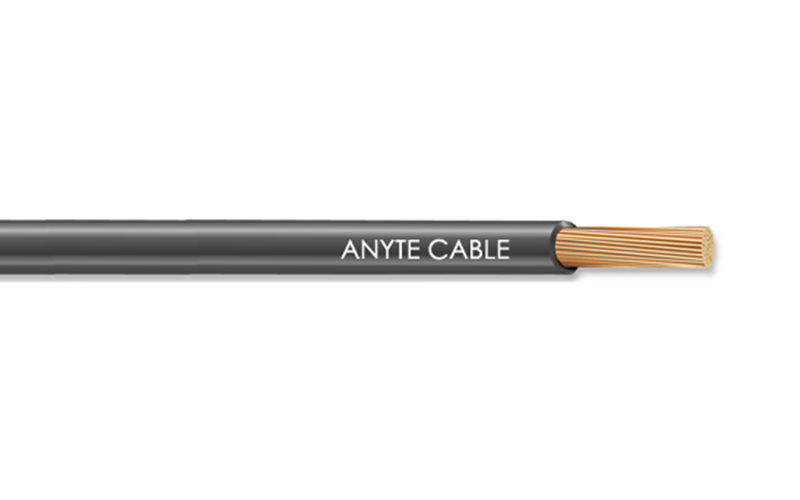Cercate una soluzione di cavo robusta e durevole? I cavi in alluminio possono essere la scelta migliore. I cavi in alluminio di alta qualità presentano numerosi vantaggi, tra cui la robustezza, la durata e la resistenza alla corrosione. Inoltre, i cavi sono disponibili in una varietà di tipi, in modo da poter trovare il cavo perfetto per le vostre esigenze. Quando si installano i cavi di alluminio, è importante seguire i suggerimenti corretti per garantire un'installazione sicura e di successo.
Benefici
1.1 Aumentare la durata
Il cavo di alluminio è una scelta eccellente per molte applicazioni perché è estremamente resistente. Questo tipo di cavo è in grado di resistere a un'usura elevata, il che lo rende una buona scelta per l'uso in ambienti difficili. Inoltre, il cavo di alluminio è resistente alla corrosione, il che significa che non si arrugginisce o si corrode nel tempo. Questo lo rende ideale per l'uso in ambienti umidi.
1.2 Aumentare la resistenza alla corrosione
Il filo di alluminio viene solitamente scelto per la sua maggiore resistenza alla corrosione. Questo perché l'alluminio è un metallo non ferroso, ovvero non contiene ferro. È noto che il ferro si corrode e arrugginisce, danneggiando i cavi. Pertanto, l'alluminio è un materiale più adatto per i cavi che possono essere esposti all'umidità o ad altre sostanze corrosive.
1.3 Riduzione del peso
Cavo in alluminiosono spesso scelti per le loro proprietà di risparmio di peso. È un materiale più leggero del rame, quindi più facile da trasportare e installare. Ciò può comportare un notevole risparmio sui costi per l'intera durata del cavo.
Come scegliere il giusto cavo di alluminio
2.1 Tipi di cavi in alluminio
Esistono tre tipi principali di cavi in alluminio: armati, non armati e con guaina. Il tipo di cavo più adatto alle vostre esigenze dipende dall'ambiente in cui verrà utilizzato e dal grado di protezione richiesto. I cavi corazzati sono più adatti all'uso esterno, mentre quelli non corazzati sono più adatti all'uso interno. I cavi rivestiti sono un'ottima opzione multiuso che può essere utilizzata sia all'interno che all'esterno.

2.2 Quali sono i fattori da considerare nella scelta dei cavi?
Quando si scelgono i cavi in alluminio, è necessario considerare diversi fattori. Il primo è la tensione nominale. Assicuratevi che il cavo sia in grado di gestire la tensione del dispositivo che state utilizzando. Il secondo è il calibro. Il calibro del cavo si riferisce allo spessore dei fili e bisogna assicurarsi che il calibro sia adeguato alla corrente che lo attraversa. L'ultimo fattore da considerare è la lunghezza del cavo. Assicuratevi di scegliere un cavo sufficientemente lungo per collegare il vostro dispositivo.
2.3 Come installare il filo di alluminio
L'installazione di un cavo di alluminio di buona qualità è un processo relativamente semplice, ma ci sono alcuni aspetti da tenere in considerazione. Innanzitutto, assicuratevi che il cavo sia della dimensione giusta per le vostre esigenze. Non si vuole avere un cavo troppo piccolo o troppo grande. In secondo luogo, assicuratevi di avere lo strumento giusto per il lavoro. Avrete bisogno di un tagliacavi, di una pinza spelafili e di un trapano. Infine, assicuratevi di seguire la procedura di installazione corretta.
2.4 Suggerimenti per la manutenzione dei cavi
La manutenzione dei cavi di alluminio è importante per garantirne la longevità. Ecco alcuni consigli per ottenere il massimo dai vostri cavi:
1. Evitare di esporre i cavi a temperature estreme.
2. Tenere lontano da sostanze corrosive.
3. Controllare regolarmente che non vi siano danni.
4. Se danneggiato, deve essere riparato o sostituito immediatamente.
Diversi tipi di filo di alluminio
3.1 Classificazione del filo di alluminio per applicazione
Esistono diversi tipi di buoni cavi di alluminio, a seconda della loro destinazione d'uso. Ad esempio, esistono cavi di alluminio per la trasmissione di energia, cavi di alluminio per le telecomunicazioni e cavi di alluminio per applicazioni a bassa tensione. Ogni tipo di cavo di alluminio ha proprietà uniche che lo rendono adatto a una particolare applicazione.
3.2 Tipi di fili di alluminio per struttura
Esistono diversi tipi di cavi in alluminio, classificati in base alla loro struttura. Il tipo più comune è il cavo di alluminio solido, costituito da un unico pezzo di metallo. Un altro tipo è il cavo di alluminio a trefoli, costituito da molti fili sottili di metallo attorcigliati insieme. Questo tipo è più flessibile dei cavi solidi, ma è anche più facile da rompere.
3.3 Tipo di cavo in alluminio in base allo strato di schermatura
Esistono diversi tipi di cavi in base alla loro schermatura. I cavi schermati sono dotati di schermi metallici attorno ai conduttori che li proteggono dalle interferenze elettromagnetiche (EMI). I cavi non schermati non hanno questa protezione e sono quindi più suscettibili alle interferenze.
Capacità di installazione di cavi in alluminio
4.1 L'importanza della pianificazione
L'installazione dei cavi può essere complicata, quindi è importante pianificarla in anticipo. Assicuratevi di sapere dove volete che il cavo vada e quanto allentamento è necessario. Se non siete sicuri di come fare, rivolgetevi a un professionista.
4.2 Dimensioni e capacità del cavo
Quando si installa un cavo di alluminio di qualità, è importante considerare le dimensioni e la capacità del cavo. I cavi più grandi possono trasportare più corrente di quelli più piccoli, quindi è importante scegliere la dimensione giusta per l'applicazione. Anche la capacità è importante, perché i cavi in alluminio possono surriscaldarsi se trasportano troppa corrente.
4.3 Posa dei cavi e protezione
Per l'instradamento e la protezione dei cavi di alluminio occorre tenere conto di alcuni aspetti. In primo luogo, è bene utilizzare uno strumento di instradamento dei cavi per organizzare i cavi ed evitare curve brusche. In secondo luogo, utilizzare una protezione per cavi di buona qualità per proteggere i cavi da eventuali danni. Infine, assicurarsi che tutti i cavi siano tenuti lontani da parti in movimento o superfici calde.
4.4 Cavi in alluminio terminati
Quando si termina un cavo di alluminio, è importante utilizzare il tipo di connettore corretto. Esistono due tipi principali di connettori: a compressione e a crimpatura. I connettori a compressione sono tipicamente utilizzati per i cavi di alluminio solidi, mentre i connettori a crimpare sono utilizzati per i cavi di alluminio a trefoli.
Per installare un connettore a compressione, innanzitutto far scorrere il connettore sull'estremità del cavo. Quindi, con un paio di pinze, stringere il connettore fino a comprimerlo completamente. Assicurarsi che il connettore sia completamente compresso, altrimenti potrebbe non essere possibile ottenere un buon collegamento.
Per installare un connettore a crimpare, innanzitutto far scorrere il connettore sull'estremità del cavo. Quindi utilizzare un paio di pinze per crimpare il connettore fino a comprimerlo completamente. Assicurarsi che il connettore sia completamente compresso, altrimenti potrebbe non essere possibile ottenere un buon collegamento.
ANYTE opera come produttore e fornitore di cavi. Effettua test rigorosi su cavi in alluminio di alta qualità e altri prodotti per garantire il rispetto di requisiti elevati e di alta qualità. Cavo resistente al fuoco e altri cavi. La durata del prodotto è superiore alle aspettative dei clienti, consentendo di avere una tecnologia di prodotto di prima classe e servizi internazionali in primo luogo.
Qualsiasi cavo non solo sviluppa e produce cavi standard di alta qualità, ma fornisce anche soluzioni eccellenti in base alle vostre esigenze e alle applicazioni del prodotto. Accogliamo con piacere la vostra richiesta in qualsiasi momento.
prodotti correlati





